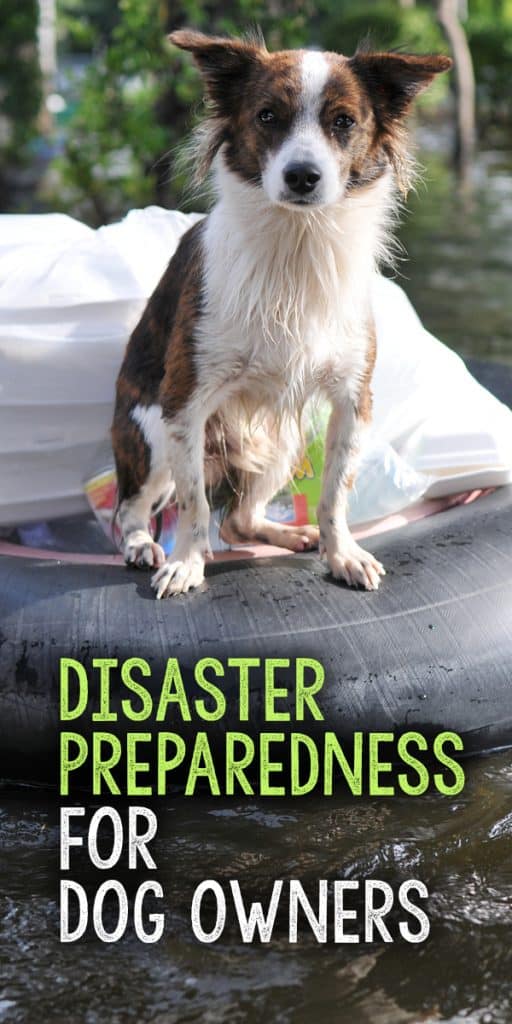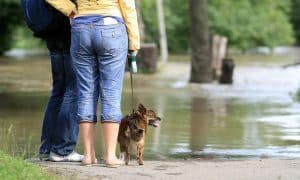“This post contains affiliate links, and I will be compensated if you make a purchase after clicking on my links.”
When it comes to emergencies and natural disasters, many of us think, “It’ll never happen to me,” and neglect to prepare in advance. But, because emergencies, like hurricanes, flooding, fires, earthquakes and other unforeseen events can happen to anyone, anywhere, being prepared is vitally important.
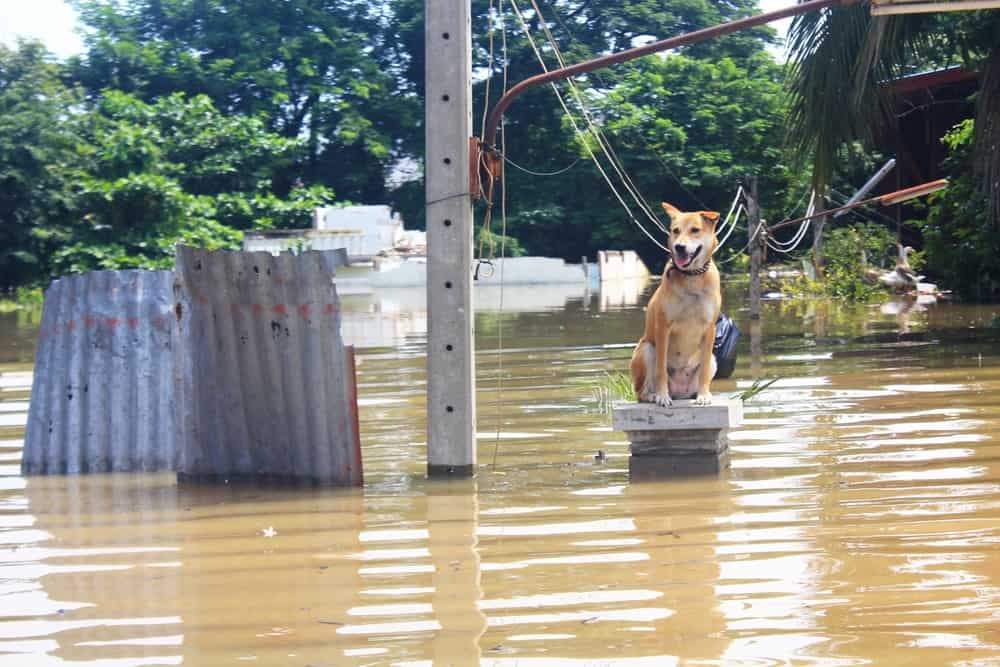
Taking some time to prepare ahead of time is the single best way to ensure your entire family – and that includes the dog – can safely weather the storm. Below are 5 things every dog owner should do to be prepared in the event of an emergency or disaster:
1. Identify & Microchip Your Dog
The single most common problem pet parents face during disaster is losing and trying to locate lost dogs and cats. Fortunately, a microchip implant makes identifying a lost dog easy for veterinarians and shelters. Make sure your dog is microchipped and that your microchip registration is up-to-date with current contact information.
In addition, although some pets don”™t wear collars at all times, make sure that dogs are wearing a collar with a current ID tag any time they are outside the home – even in the backyard.
2. Be Prepared to Evacuate
A dog should never, ever, be left alone, frightened, and unsafe if you choose or are forced to evacuate your home. But, waiting until disaster strikes to figure out where you”™ll go can be a grave mistake. Well in advance of any disaster, pet parents should determine which local evacuation shelters, if any, will accept pets and, if so, what is required of them at the time of evacuation. Most pet-friendly shelters will require dogs to be kept in a crate or travel kennel at all times. Many will require proof of current rabies and/or vaccinations.
If there are no pet-friendly evacuation shelters in your area, contact local hotels, boarding facilities, and veterinary offices and inquire about their policies for taking in pets during an emergency. It IS possible to evacuate – even with a house full of people and pets.
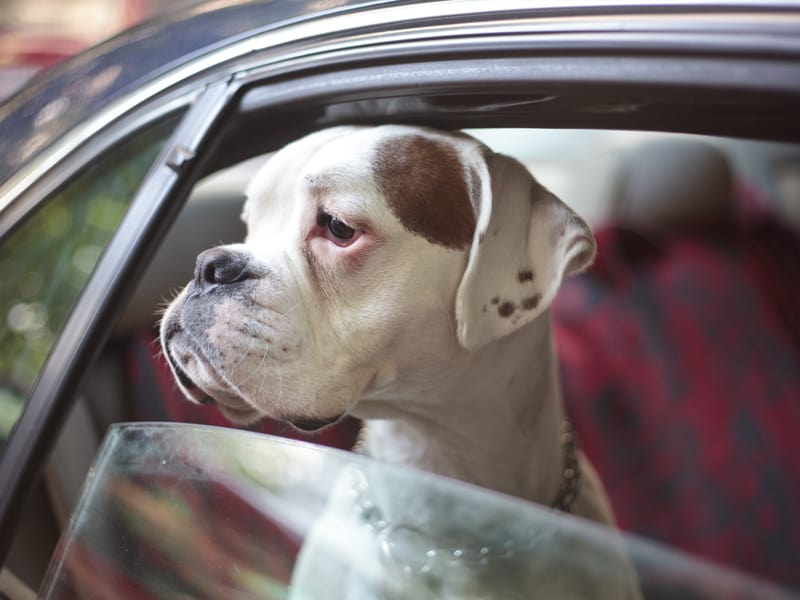
3. Have a Plan to Stay Safe at Home
If evacuation is not mandatory and you choose to remain in your home with your dog, practice extreme safety. Keep dogs under your direct supervision at all times, preferably within a crate or on a leash. Loud thunder, heavy rains, strong winds, the smell of smoke, and other changes in the atmosphere around your home can be very frightening for animals. Further, should it be necessary to evacuate, you”™ll need to gather your four-legged family quickly – trying to drag a frightened dog out from beneath the bed uses precious moments in an emergency situation.
Plan ahead, designating a secure area of your home as your “safe room,” in which all family members and pets should gather during disaster. Keep emergency supplies stored in your safe room so they”™re easily accessible if you need them.
Once you”™re safely out of danger, keep pets inside while you assess any damage. Fences may have come loose, trees or electrical lines may be down, or your yard may be flooded. Until you”™ve determined that everything is perfectly safe, do not allow dogs to venture outside.
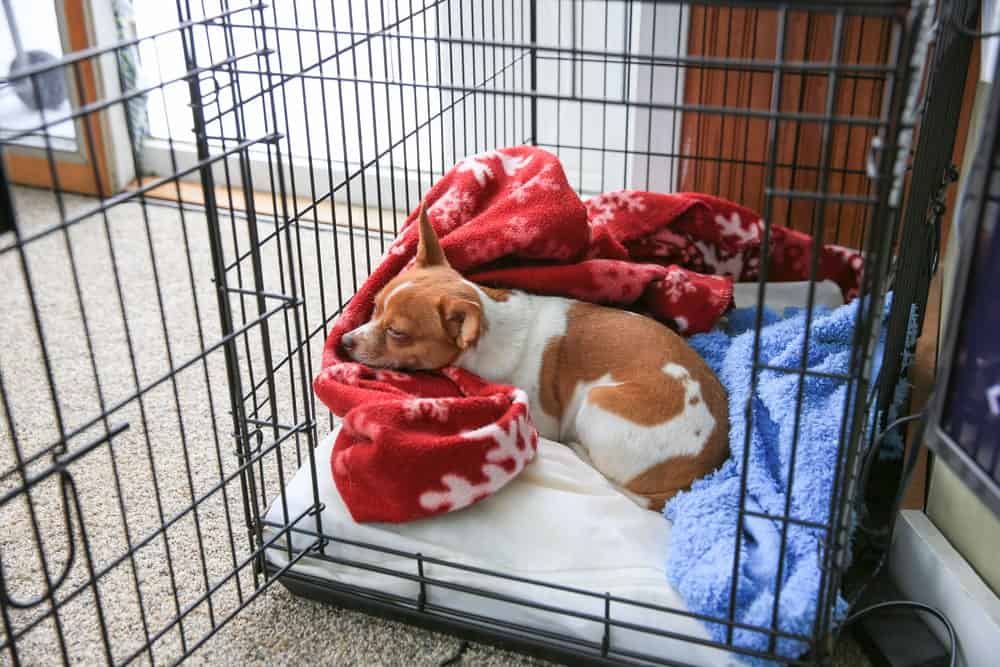
4. Be Prepared In Case Disaster Strikes While You”™re Away From Home
Unfortunately, not all emergency situations happen when you”™re at home or in a position to assist your dog. Affix stickers to windows at both the front and rear entrances to the home that inform emergency responders of the number and types of pets inside the home.
If you”™re friendly with or trust a neighbor, make arrangements for them to be responsible for your dog if disaster strikes while you”™re away from home. Make sure they have a key and know any security codes needed for entry. Do a quick walk-through to show your neighbor where to find collars and leashes, pet food, and any medications your pet requires. Should your neighbor be forced to evacuate while caring for your dog, make sure they have access to your dog”™s crate and shot records, should they need to board or shelter your pet.

5. Prepare a Disaster Kit
By the time disaster strikes, it”™s too late to purchase and gather supplies to help you through it. Pet parents should have a disaster kit prepared at all times. In addition to gathering supplies for the humans in the family, the following provisions will be needed for the dogs: at least one week”™s supply of drinking water, food, treats, and medications. Because you”™re preparing your kit well in advance of any disaster, you”™ll want to periodically check that food and medications are not expired.
Your kit should also include copies of veterinary and shot records, a photo of your dog in the event that he is lost, an extra leash, a crate or kennel suitable for traveling if needed, basic pet first aid supplies, and any other items, like a favorite blanket, bed, or toy, that your dog may need to stay as calm and comfortable as possible.
No one has ever been faulted for being prepared ahead of an emergency or disaster. At the very least, you’ll take comfort knowing that you’re prepared. At most, you could save the lives of your furriest family members.
Do you have any additional emergency preparedness tips for dog owners? Share them in a comment below!
Found this article helpful? Pin it!
